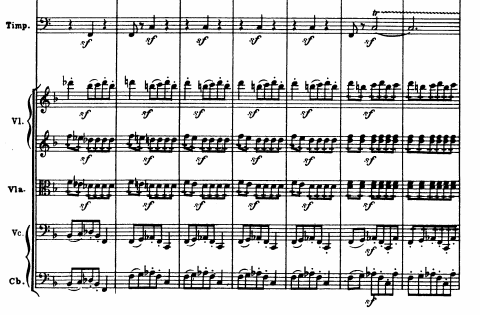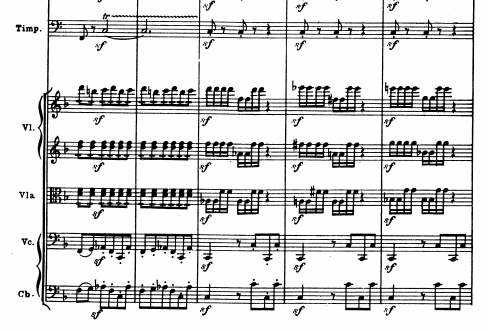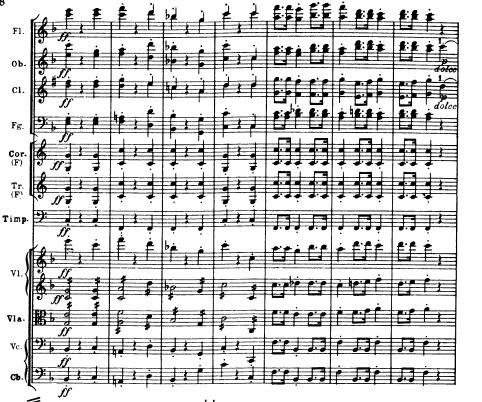This is from the first movement of Beethoven's eighth symphony:


Look at the 6th through the 9th bars. Here he seems to change from 3/4 to 6/8! There is still another example of this in the same movement (last three bars below):

They seem written in 2/4. Notice the entire movement is written in 3/4. Of course there is the famous passage in the third symphony, third movement, main section (i.e., not the trio), marked alla breve. But here, at least in my edition the time signature is given explicitly 2/2. If Beethoven was the author of this time signature, it would be interesting to know who were his immediate predecessors in this usage. These passages can be heard in http://www.youtube.com/watch?v=IuCFkbMr8qY (5:35 and 7:25).
As to the eighth symphony, were it written in the 20th century, the composer would very likely write the time signature. Any other instances of implicit time signature changes in Beethoven?


Look at the 6th through the 9th bars. Here he seems to change from 3/4 to 6/8! There is still another example of this in the same movement (last three bars below):

They seem written in 2/4. Notice the entire movement is written in 3/4. Of course there is the famous passage in the third symphony, third movement, main section (i.e., not the trio), marked alla breve. But here, at least in my edition the time signature is given explicitly 2/2. If Beethoven was the author of this time signature, it would be interesting to know who were his immediate predecessors in this usage. These passages can be heard in http://www.youtube.com/watch?v=IuCFkbMr8qY (5:35 and 7:25).
As to the eighth symphony, were it written in the 20th century, the composer would very likely write the time signature. Any other instances of implicit time signature changes in Beethoven?


Comment